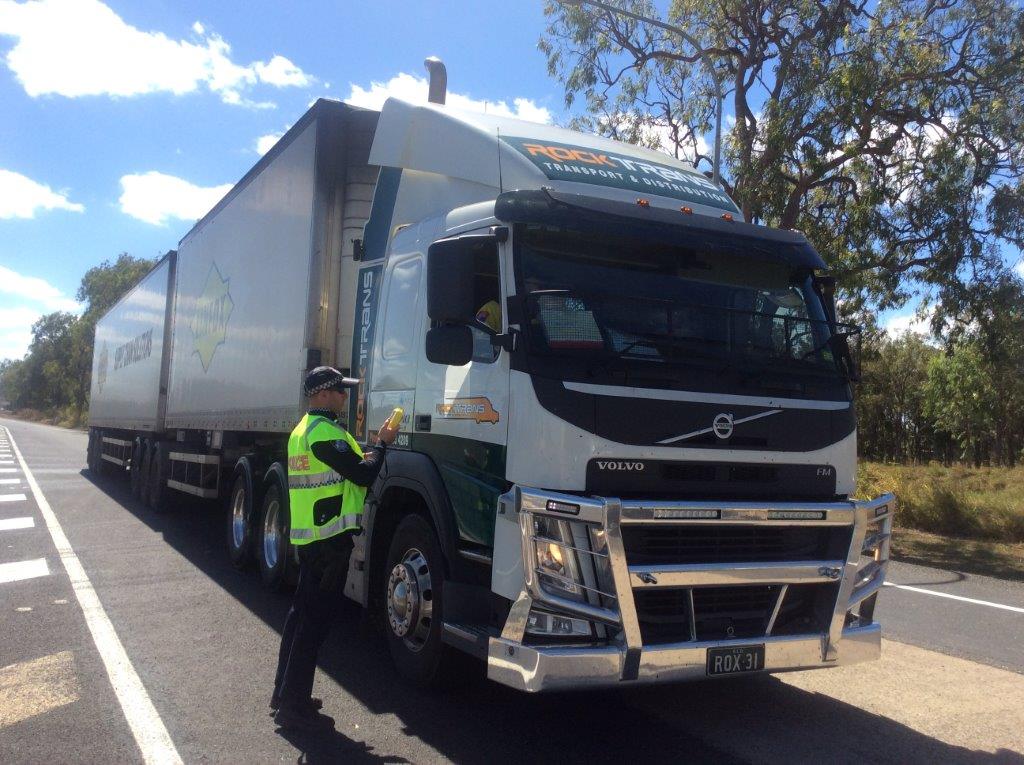Mareeba RPU tackle driver fatigue in heavy vehicles
With 17 fatalities this year in the Far North, fatigue is a big issue and a message Road Safety Week promotes, don’t drive tired.
Fatigue can affect anyone, not just our heavy vehicles on the road.
Queensland has some vast distances between towns which makes it all the more important for drivers to plan their trips, particularly truck drivers who are regularly doing the long hauls.
It’s proven that fatigue has a considerable effect on our ability to undertake tasks requiring any degree of skill. It will also affect your judgement and perception, as well as markedly slowing your reaction times.

An intercept of a truck to check his logbook for fatigue management
Hardly the sort of handicap you need when you’re in control of a couple of tonnes of motor vehicle, hurtling along a highway and passing oncoming vehicles at a closing speed of some 200 kilometers per hour at a margin of perhaps two metres!
With this in mind and the large volume of fatigue-regulated heavy vehicles operating throughout the Atherton Tablelands and training was recently provided to members of the Tablelands Patrol Group to assist them in identifying, investigating and taking the necessary action regarding fatigue management related offences.
We all want to get home safely and to avoid fatigue you need to take regular breaks, recognise the signs and pull up at the first available safe spot for a rest.
Avoid driving when you’re tired. 10 hours a day is the maximum you should drive. On long trips, rest every two hours for at least 15 minutes.
So speak up for road safety and avoid fatigue as part of Queensland Road Safety Week.

Intercepting site at Walkamin
If you have information for police, contact Policelink on 131 444 or provide information using the online form 24hrs per day.
You can report information about crime anonymously to Crime Stoppers, a registered charity and community volunteer organisation, by calling 1800 333 000 or via crimestoppersqld.com.au 24hrs per day.
Source: Cairns Crime Alert






